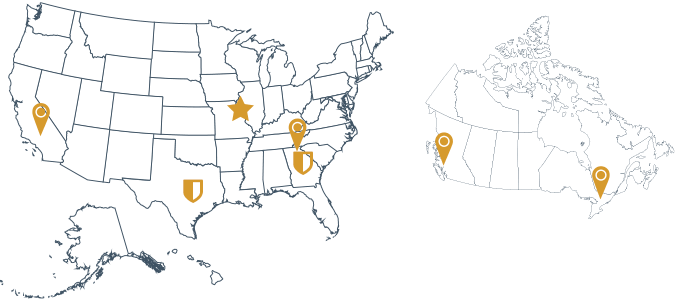I recently returned from the Mini Takes the States road trip, an event organized by Mini USA in which a set of routes is organized, and a large group of Mini owners get together to have a driving experience across the country. We took the Orlando, Florida to Keystone, Colorado route, which was the east leg. Others came from Portland, Oregon to Keystone on the west leg.
On the way back we did not follow the route we’d come, primarily on the state roads. We just wanted to get home as quickly as possible, so we opted for the Interstates. As we drove through Oklahoma, I realized that the state has a law mandating that you must stay in the right lane except to pass. This is good for emergency vehicles. It is also good for people that need to pass.
On a long stretch of highway, I noticed that the right lane had become deteriorated. Because of the “stay-in-the-right-lane” law, people primarily drive in the right lane. There have been repairs to the right lane, but the repairs aren’t very well done.
I start to wonder if I drive in the left lane if I’ll get a ticket. If the right lane is so bad, will they really give you a ticket for driving in the much smoother, faster left lane?
Why the smoother, faster lane matters to your RCM
As I drove, my mind began wandering. How does this scenario compare to RCM services? The relation to government run services immediately became evident. Medicare and Medicaid tell you that you have to submit claims a certain way. Just like the state of Oklahoma, they are, in essence, telling you which lane you must drive in. But that lane is rough and much slower. And it slows even more when they continuously change the rules.
Even if you follow the rules, it is difficult to get Medicare and Medicaid to pay. In many cases, you find yourself in what seems to be a never-ending battle. How many times have you had to call them to reprocess the claim? How many times have you had to resubmit a claim? The issue may not even be with how you submitted the claim. It could be on the payer side where they have an ID or taxonomy code incorrect in their system.
This makes the AR follow-up on Medicare and Medicaid claims challenging, and the burden is on your practice to continually follow up on these claims. If your practice doesn’t have the resources to commit to this process, or are overcoming hurdles like staffing changes, maintaining your cash flow and collecting what is owed to you is very difficult.
But you’re stuck in the bumpy right lane when there is a much smoother one right next to you. You badly want to get in that left lane, and you’re being held back. Until now.
Speed up your claims and collections with RCM360
RCM360 can put you in the fast lane, and make a significant impact on your cash flow. Partner with us for your:
- AR Follow-up … we have the resources you need to dig into your AR, and a solid system in place to continue following up until claims and collections are resolved
- Rejected Claims Corrections … there are common reasons for claims to be rejected. The RCM360 team knows what they are, how to correct them, and most importantly, how to get your paid for the work you’ve done.
- Ongoing Outsourced Billing and Collections Management … RCM360 is a team of billing professionals. We’re hands-on, and always maintain a goal of collecting as much money as possible on your behalf, not just the low hanging fruit.
All of this leads to stabilized cash flow, consistent follow-up and process to make your medical practice’s billing and collections more consistent. It’s life in the fast lane at its finest.
Are you ready for a smoother ride? Contact us to do your free AR analysis to see how much you are leaving on the table.


